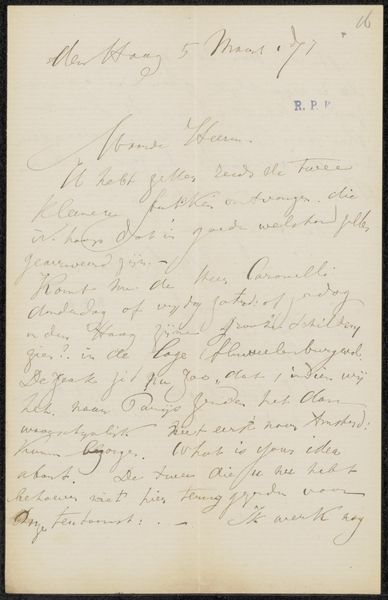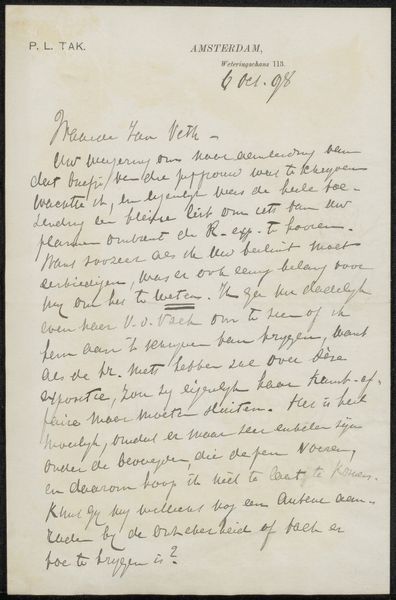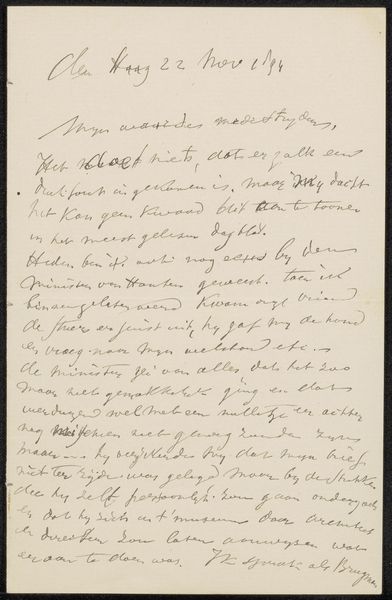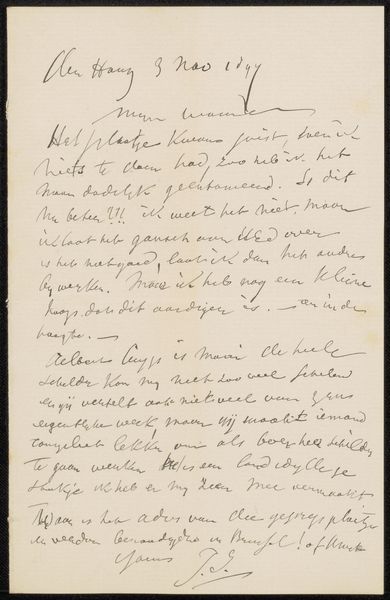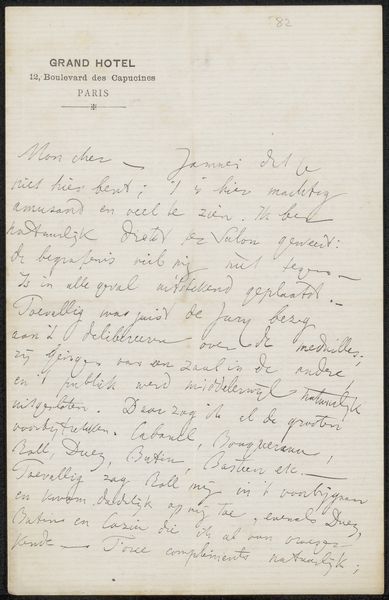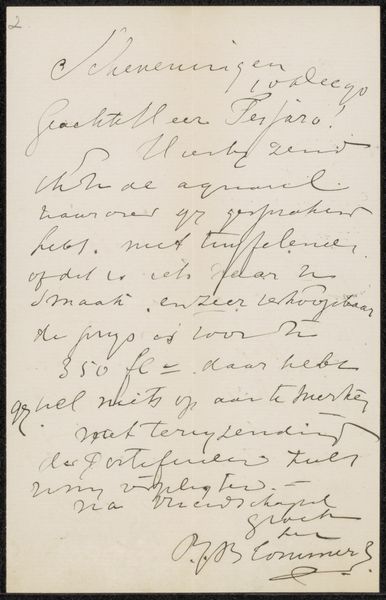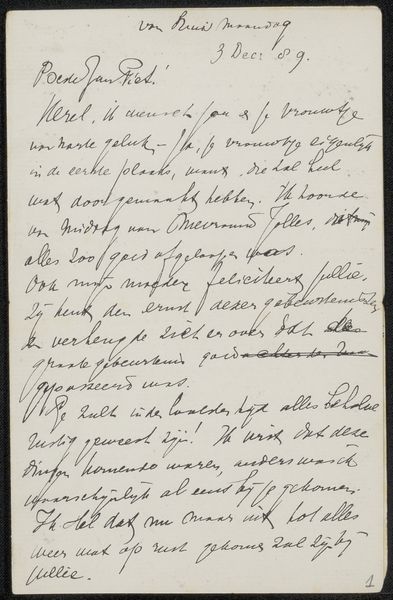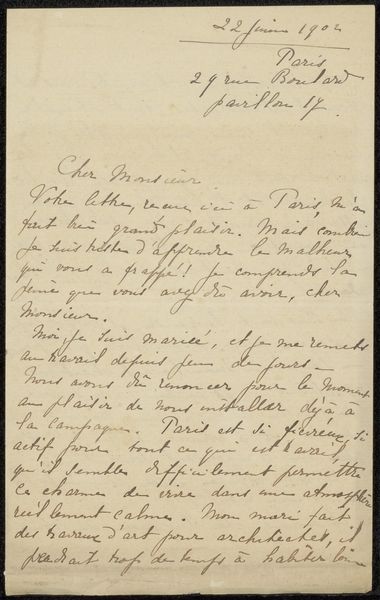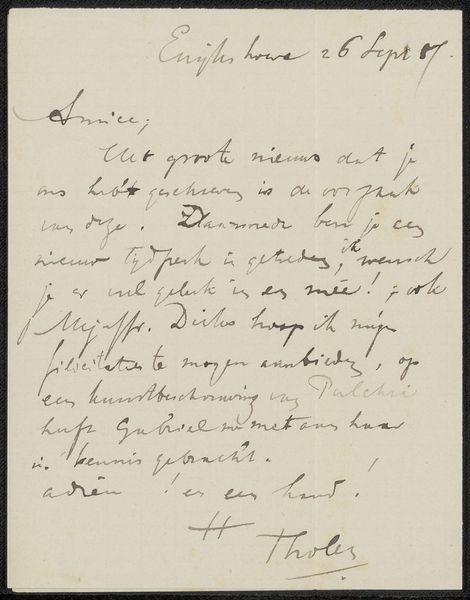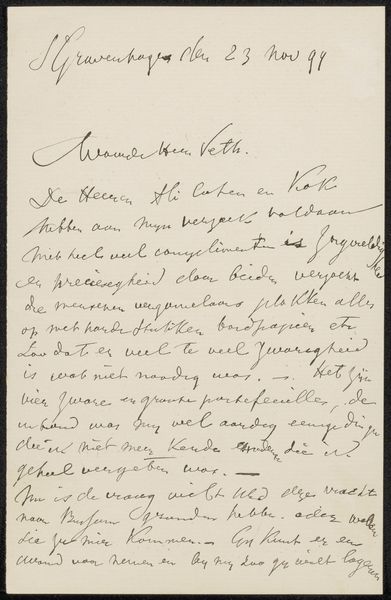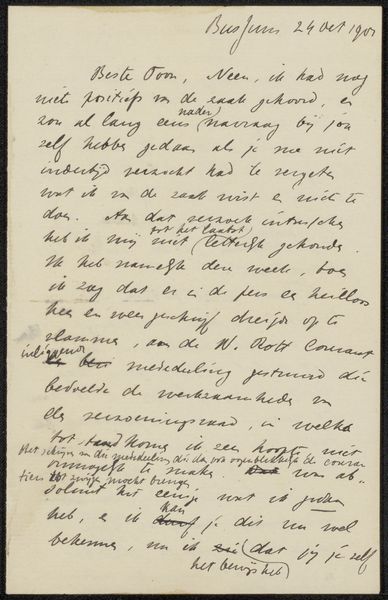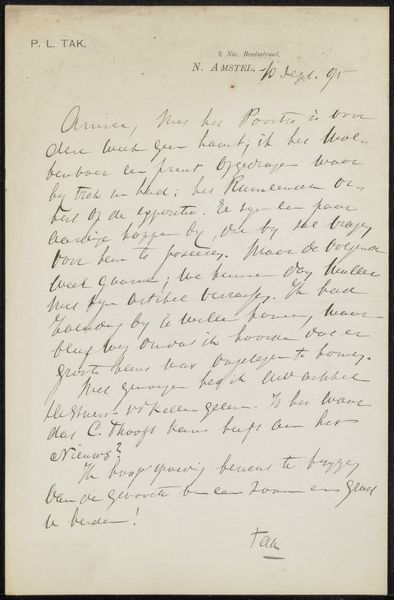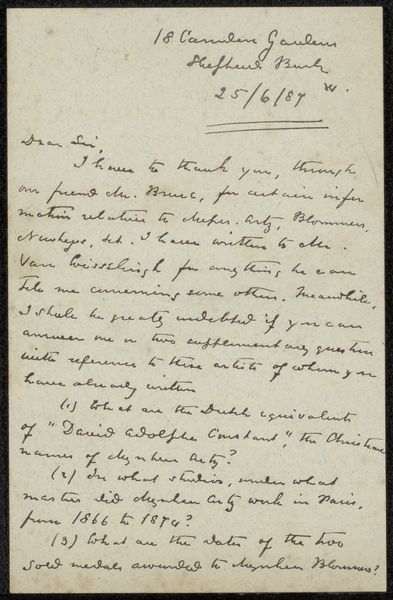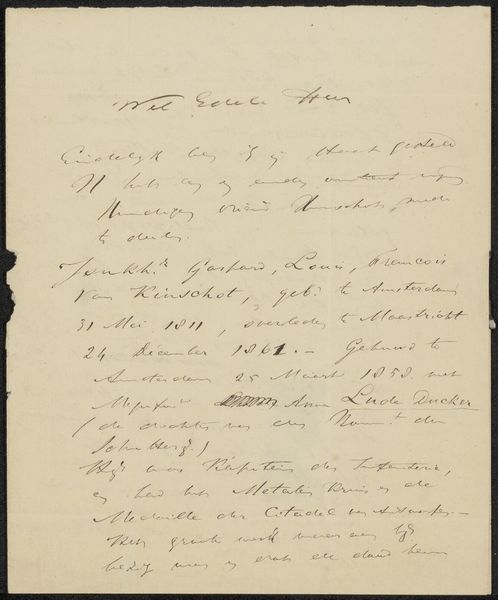
drawing, paper, ink
#
drawing
#
hand-lettering
#
old engraving style
#
hand drawn type
#
hand lettering
#
paper
#
personal sketchbook
#
ink
#
hand-drawn typeface
#
intimism
#
pen-ink sketch
#
pen work
#
sketchbook drawing
#
sketchbook art
#
calligraphy
Copyright: Rijks Museum: Open Domain
This letter to Jan Veth, composed by Cornelis Winkler in 1902, uses the simplest of materials: paper and ink. But this belies a whole world of production. Consider the paper itself, made from processed plant fibers, likely manufactured in a factory setting. And the ink, a carefully calibrated chemical compound, mass-produced and readily available. The handwriting, spidery and elegant, speaks to the author’s education, a form of cultural capital. Each stroke of the pen embodies a specific form of labor, requiring precision and practice. The letter's contents further allude to the recipient's labor and class, suggesting the material conditions of artistic production at the time. Even something as straightforward as a handwritten letter implicates a complex web of industrial processes, skilled traditions, and social dynamics. Paying attention to these elements allows us to grasp a richer understanding of its place in the world.
Comments
No comments
Be the first to comment and join the conversation on the ultimate creative platform.
